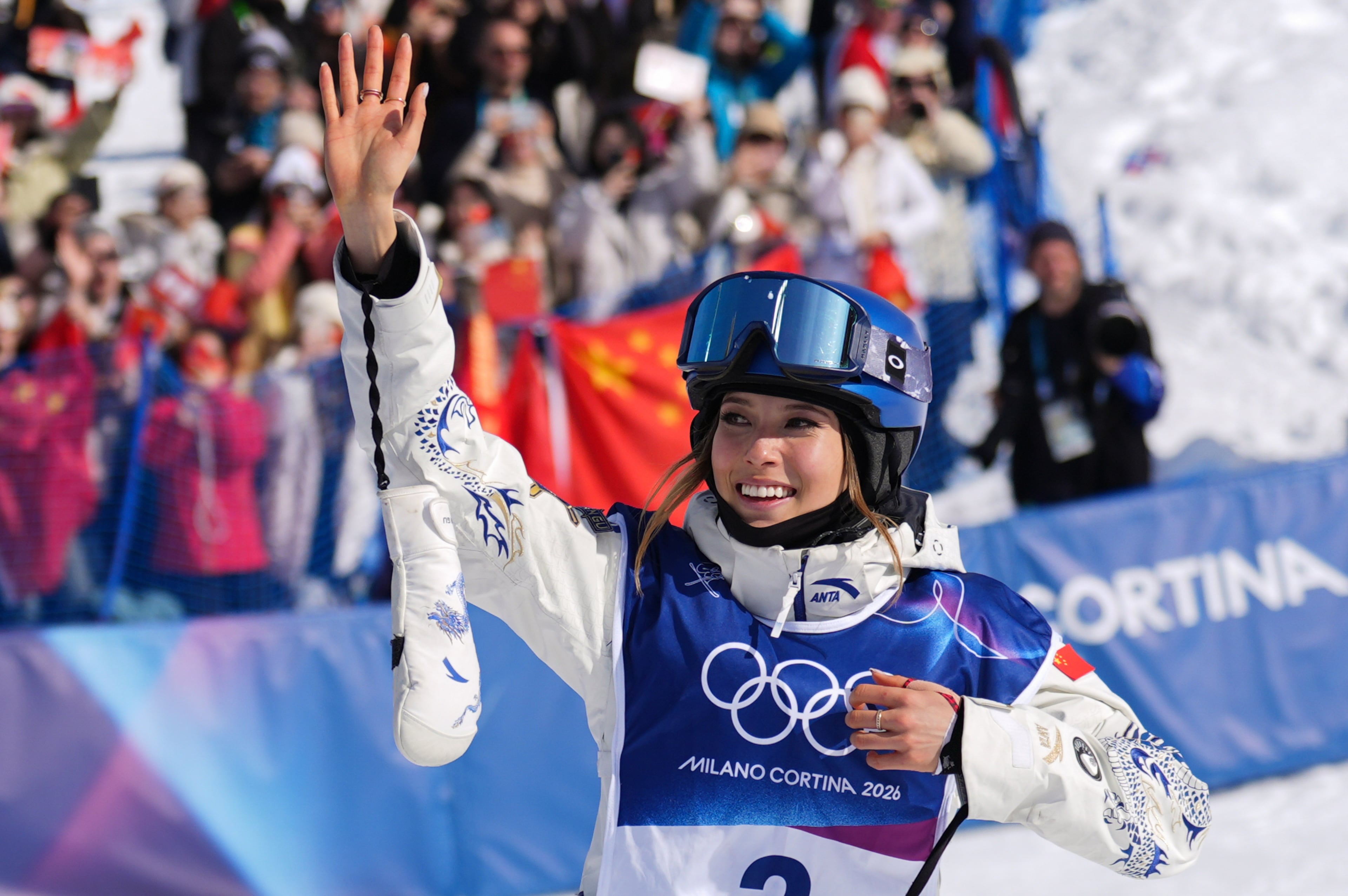Roberta Vinci, still aglow from landmark upset, embraces new normal

After the extraordinary September afternoon on which she put an end to Serena Williams’ Grand Slam bid in the U.S. Open semifinals, Roberta Vinci has had to redefine what passes for normal in her life.
In an interview last week at the Brisbane International, Vinci initially played down the events of recent months before being betrayed by a colossal smile.
“It was normal,” she said. “Well, not normal for me, but normal for the result that I had.”
Vinci lost the Open final to her childhood friend and fellow Italian Flavia Pennetta, but her ensuing months still have been filled with galas and photo shoots in her home country.
Vinci, 32, had tasted major successes before, having been ranked No. 1 in doubles and claiming a career Grand Slam with her former partner Sara Errani. She and Errani had even beaten the Williams sisters in doubles at the 2013 Australian Open.
When Vinci added a singles victory last September, she joined Ekaterina Makarova and Lindsay Davenport as the only players to have defeated Williams at a Grand Slam tournament in singles and doubles.
But Vinci’s doubles achievements pale in comparison to what she achieved under the broiling spotlight as Williams marched toward tennis history. Williams, a 21-time major champion, was two victories from an elusive Grand Slam.
Vinci, ranked 43rd at the time, had never come close to beating Williams in singles. She was not expected to pose much of a threat, but she calmly carved around Williams, who grew only tighter as Vinci took control of the third set.
“I was trying to stay normal,” Vinci recalled. “I was a little bit confused, but ‘hit-the-ball-and-run’ was on my mind. And try not to think. My coach told me I was completely not acting nervous. I was quiet, not speaking. I had a good feeling. Everything was perfect that match.”
Though her tunnel vision served her well in a 2-6, 6-4, 6-4 victory, Vinci has grasped more about the match upon repeated viewings, which has been made easier for her after obtaining a copy of the match on DVD.
Though she had understood what she was doing herself, she had not noticed just how Williams was struggling opposite her.
“I saw the match on TV a few times — a lot of times,” she said, laughing. “And I played good. But for me, she was nervous — a lot. Especially when I saw the match on TV, I saw her, and her breathing, and she cannot breathe. But when I played, I didn’t see that. She was not tired, but I think nervous about the Grand Slam, about the results, and everything. But I think I played really, really good.”
Vinci’s performance up through her winning half-volley on match point may not be remembered as long as her on-court victory interview. As her expressive face articulated her feelings far better than her hesitant English, Vinci brightened the atmosphere of Arthur Ashe Stadium, with thousands of stunned fans soon reflecting her radiant grin.
Her smile has rarely flickered in the four months since.
“Why shouldn’t I smile?” Vinci said. “It was important, and I really enjoy every single moment, every single day after the U.S. Open. Now, it’s a new season, and I’ll try to forget a little bit about Serena and the results, and stay focused for the new year.”
Vinci’s coach, Francesco Cina, said the aggressive, purposeful play Vinci showed against Williams had continued in the months since.
“Playing in the semifinals for the first time at a Slam — and she played Serena, the No. 1, a fantastic player — she played good,” he said. “She played with a good head and was mentally fantastic. It was a good surprise. Incredible.
“When she won against Serena, it was the most important win for her. And now when she goes onto the court, she remembers that match with Serena.”
Now ranked 15th, Vinci reluctantly states her goal for this year is to crack the top 10 in singles for the first time. She is wary of putting too much weight on that threshold, having been previously stalled by nerves when she peaked at No. 11 in 2013.
But Vinci is not nervous about what might happen when she next comes face to face with Williams, on- or off-court, when the two convene at the Australian Open in Melbourne this month.
“Well, I would like to say, ‘Ciao, Serena, how are you?” Vinci said. “But I don’t know. I think we’ll be perfect. I don’t have anything I want to say to her. Just ‘Ciao.’”
Vinci means it to be a greeting, but she will soon be bidding Williams farewell. Vinci said she was planning for this season to be her last.
“I’m not young,” she said. “It’s been a lot of years, a lot of stress, and sometimes it’s time to change. But you never know. If at the end I would like to continue, why not? But for sure I don’t want to play more than three or four years. In my mind, I would like to stop.”
Whenever she does hang up her racket, Vinci accepts that she will be most remembered for her one afternoon in New York.
“I had a lot of results in singles and also doubles, but it’s normal that people know me right now from the match with Serena,” she said. “I practiced before on Court 12 here, and I heard one person say, ‘Oh, this is the person who won against Serena!’ It’s normal.”


